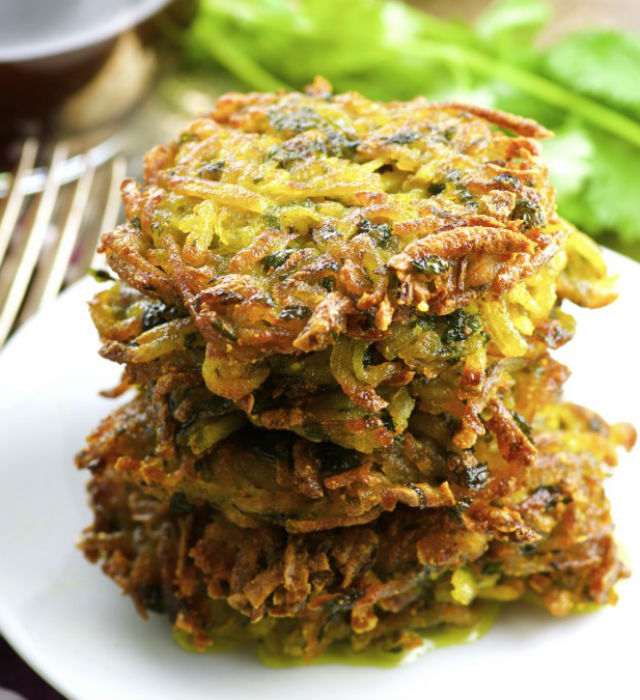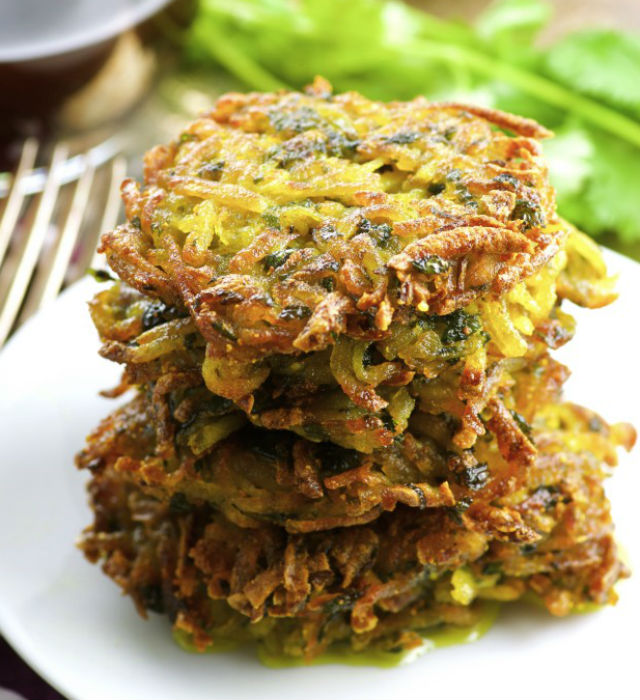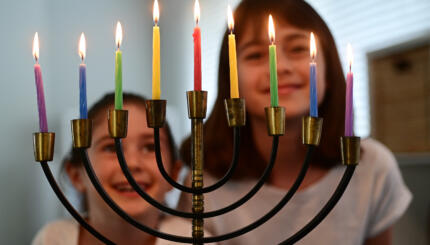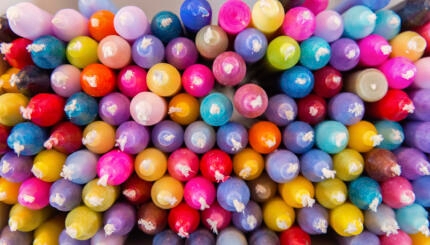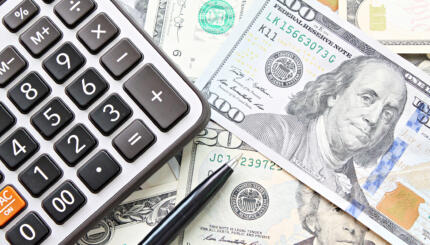is known as the Festival of Lights, thanks to the one-day supply of oil lasting a miraculous eight days. In the spirit of this resource-preserving miracle, here are eight suggestions from the Jewish environmental organization Hazon for making your Hanukkah celebration more environmentally sustainable.
Use locally grown potatoes and onions, and fry them in organic oil.
Potatoes and other root vegetables are in abundance during the winter, and buying food locally cuts down on the greenhouse gasses from transporting food. Stop by your local farmers market and stock up prior to making your Hanukkah latkes.

Help us keep Jewish knowledge accessible to millions of people around the world.
Your donation to My Jewish Learning fuels endless journeys of Jewish discovery. With your help, My Jewish Learning can continue to provide nonstop opportunities for learning, connection and growth.
Change up your latke toppings.
Rather than buying a traditional brand of sour cream, stock up on an all-natural or organic type. Make your own applesauce from locally grown apples — or buy an organic brand such as Santa Cruz or Trader Joe’s. Or check out some of these homemade topping ideas.
Eat less meat.
The meat industry is one of the greatest single contributors to global climate change. Use the festive opportunity to cut down on meat consumption and eat some of the wonderful produce that is available during the winter months. If you want to avoid all animal products, try one of these vegan latke recipes: regular and beet.
Use environmentally sustainable candles.
Beeswax, soy, and palm oil provide more natural alternatives to the traditional paraffin Hanukkah candles. Several vendors sell beeswax Hanukkah candles, and GoodLight Natural Candles’ Hanukkah candles not only claim to be “clean burning and non-toxic,” but the company “contributes to sustainable palm farming.”

Reuse the wrap.
Reusable gift bags are a great way to be environmentally conscious as well as a great supplementary gift, a beautiful gift bag that the next individual can reuse! Check out Etsy and Amazon for Hanukkah themed reusable gift bags and wrap!
Cut down on gifts.
Unwanted gifts often end up in landfills, with their packaging and non-biodegradable parts. Ask friends and loved ones to consider instead making a donation in your name to one of your favorite environmental (or other) charities.
Green your Hanukkah decorations.
As a family or community activity, make your own Hanukkah using recycled materials you find around your house. For more ideas on menorah-making, click here. You can also buy Hanukkah menorahs made from recycled materials on Etsy and Amazon.
Save paper and avoid waste.
Send environmentally friendly e-cards as opposed to the traditional paper cards. Or, buy cards made from recycled paper. If you’re hosting a Hanukkah party or large communal meal, use recyclable, reusable or compostable plates and flatware. Additionally, try to use reusable tablecloths and napkins.
Adapted with permission from Hazon. Hazon, which means “vision” in Hebrew, is America’s largest Jewish environmental organization and aims to create healthier and more sustainable communities in the Jewish world and beyond.
Explore Hanukkah’s history, global traditions, food and more with My Jewish Learning’s “All About Hanukkah” email series. Sign up to take a journey through Hanukkah and go deeper into the Festival of Lights.
